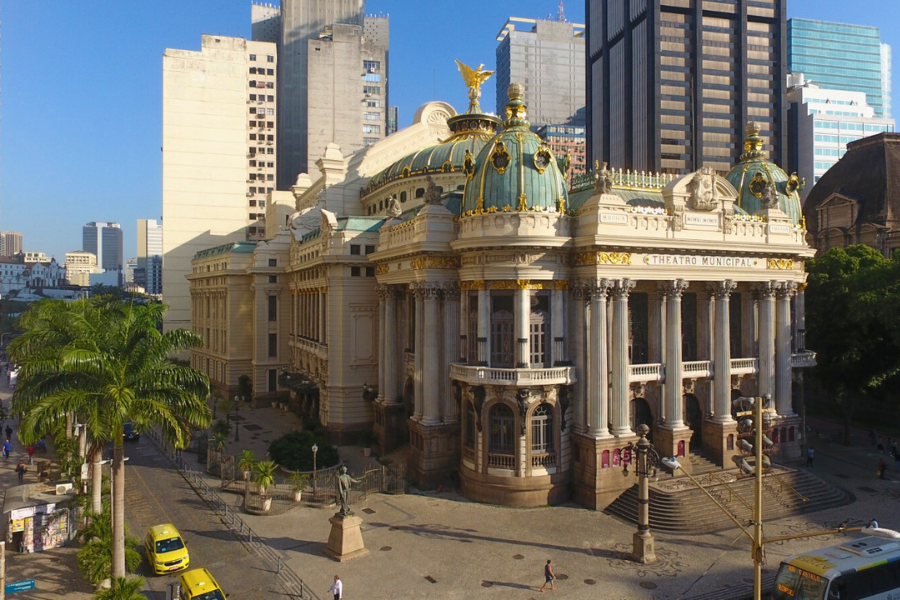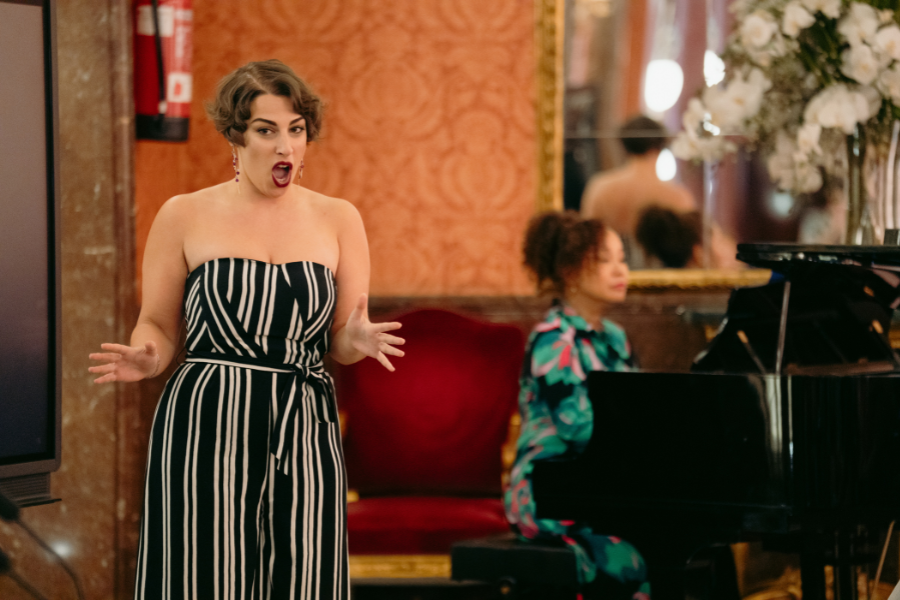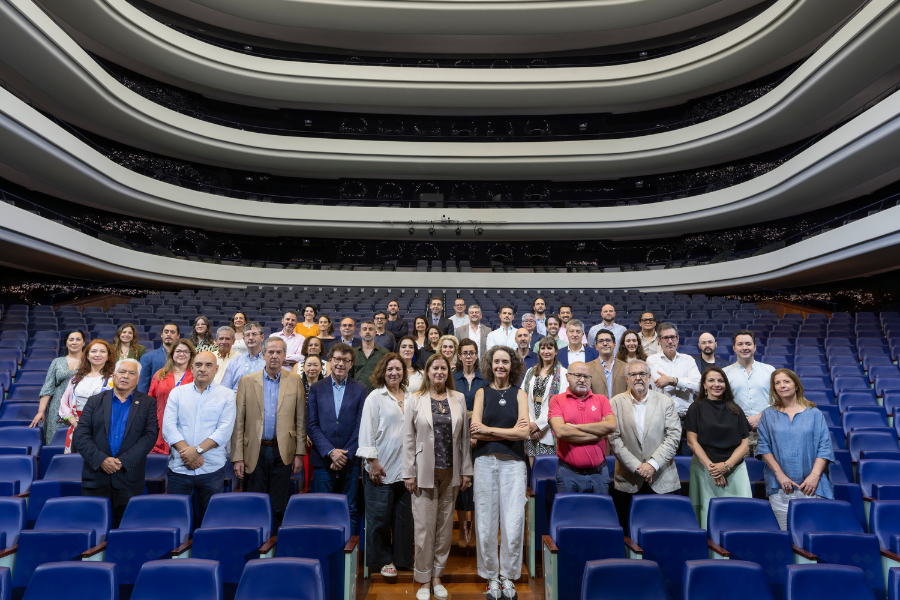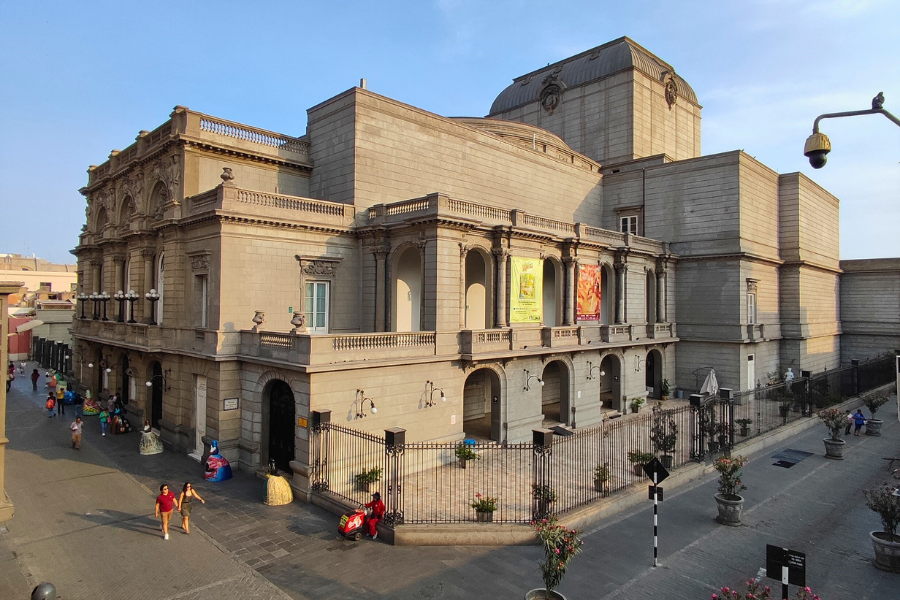Labor de OLA destacada en el debut de la Revista Alma Lírica
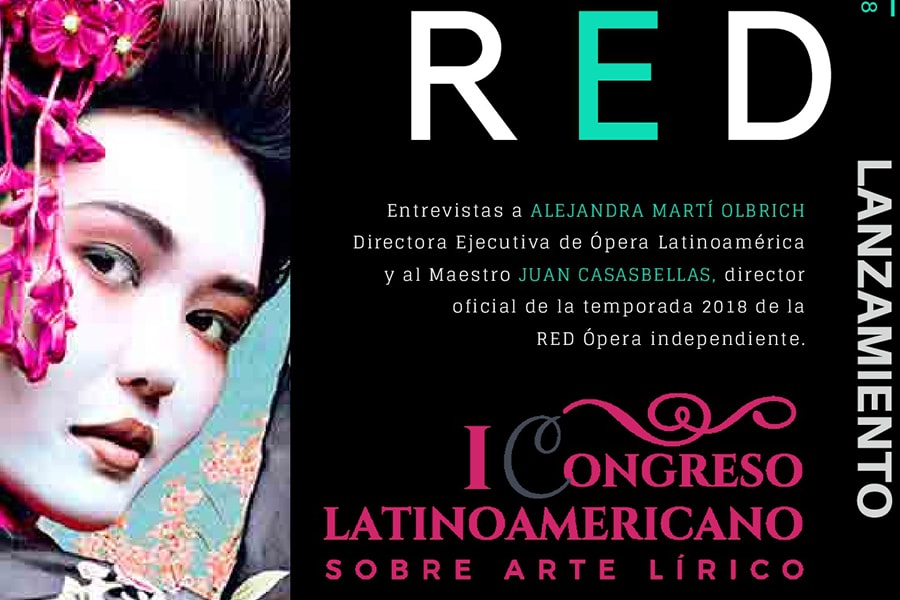
En su primera edición la revista Alma Lírica rescata el aporte que ha sido la labor en el desarrollo del talento lírico y la circulación de producciones en Latinoamérica
.
Trabajo en Red
Desde hace algunos años, el trabajo en el mundo, se ha convertido en una gran herramienta impulsada por los sectores que están buscando crecer. Considerada como un arma segura de crecimiento, la red de colaboraciones está siendo utilizada en el arte por los grandes Teatros Líricos que desde hace una década trabajan compartiendo formación, producciones y artistas.
.
Esta metodología de trabajo requiere mantener ciertos criterios básicos comunes, si bien cada sector puede crear con autonomía, a la hora de fomentar los intercambios es claro que se necesitan unificar criterios y también garantizar ciertas calidades.
.
Es importante considerar que, en todos los aspectos, el “todo” es más que la suma de las partes. Al trabajar en red se generan sinergias, se integran elementos que dan como resultado algo mayor que su simple adición. Se aprovechan y maximizan las cualidades de cada uno de los elementos de la red, las fortalezas se replican en los otros miembros y las debilidades se disminuyen gracias a las fortalezas del resto.
.
A su vez, se inspira confianza a los otros integrantes y se legitiman las acciones tomadas por cada una de las partes, las cuales pasan a ser decisiones de grupo, pensadas hacia un objetivo común, como es la asociatividad.
.
Por otro lado, los tiempos actuales obligan a negociar mejor. En el arte, ninguna producción, sea oficial o independiente se puede dar el lujo de dar pasos en falso, comprometerse con cosas que luego no se pueden cumplir puede ser catastrófico, sobre todo para una compañía pequeña o que se está iniciando. Esto se aplica también a obras que se termina no haciendo, pagos de honorarios que no se realizan, etc. Por eso, mientras más grandes somos más fácil es negociar y mejores condiciones se consiguen para todas las partes. El pertenecer a redes de trabajo simplemente nos hace más fuertes.
.
La cooperación es otro punto elemental. Las necesidades son muchas, pero muchas veces también son las mismas. La situación puede ser una solución ya encontrada, la creatividad se potencia, son más cabezas, más ideas, más puntos de vista, pero todos apuntan a la excelencia, por ende, todo fluye mejor, porque todos los actores cumplen mejor su rol.
.
Hay mayor proyección, mejor información y una riqueza inigualable generada por la diversidad, porque trabajar en red no significa ir todos como soldaditos repetitivos, sino por el contrario, propone aportar desde cada uno lo mejor, en pos de un todo superior.
.
Implementar este tipo de colaboraciones, supone un espacio de desarrollo más divertido, donde los logros se comparten y festejan, donde se busca optimizar tiempo, dinero, trabajo y esfuerzo. Apunta a un crecimiento común en la búsqueda de herramientas sólidas y a un despertar del pensamiento creativo colectivo.
.
Dentro de un tiempo, todo el que no esté dispuesto a trabajar en red, estará fuera del sistema; por eso generar redes de colaboración que se adapten a cada estadío es elemental. En el arte, donde se supone que los individuos somos más creativos, no nos podemos permitir más las individualidades. No podemos seguir ponderando el ego como tampoco podemos permitir que esos egos limiten el crecimiento común.
.
El mundo de la lírica necesita un cambio drástico y hoy está divisándose la luz por medio de la cooperación y la creación conjunta. Cada etapa del arte debe tener su lugar, su red, pero a su vez, es indispensable que todas las redes conecten entre sí, articulen, aporten a otras, se respeten, reconozcan y se nutran, en definitiva: den el ejemplo.
.
Una asociación de teatros
Ópera Latinoamérica O.L.A., es la Red de teatros más importante de Latinoamérica que agrupa a los principales teatros de ópera de Latinoamérica y de España. Su misión es promover las artes de la representación por medio del trabajo en red, así como el intercambio de información y de trabajo en las áreas de gestión, artística y técnica entre los distintos teatros que la integran. Su visión es ser el puente entre las artes de la representación clásicas de Latinoamérica y el mundo, una red de apoyo, difusión, creación de nuevos proyectos y referencia de estas artes en América Latina tanto para los teatros de la región, como del extranjero.
.
Fue fundada el año 2007 en el Municipal de Santiago de Chile junto a otros teatros de Latinoamérica. Durante sus 10 primeros años de vida fue una Organización dedicada a mantener las relaciones de los teatros en torno a las coproducciones y circulación de espectáculos entre la Región y con otros teatros del mundo.
.
En marzo del año 2017, en la reunión de OLA efectuada en el Teatro Colón de Buenos Aires, la Asamblea de teatros determinó constituir la personalidad jurídica de OLA con sede permanente en Santiago de Chile.
.
Hoy en día, la Asociación cuenta con más de 25 instituciones de Argentina, Brasil, Chile, Colombia, Ecuador, Estados Unidos, España, México, Perú y Uruguay. Instaló una administración ejecutiva permanente que está liderando un innovador proceso de desarrollo de proyectos y servicios para los miembros y asociados.
.
Ejes estratégicos
El año 2015, la Organización empezó a planificar su desarrollo estratégico para los próximos 10 años. Se determinaron 5 ejes de acción. Entre ellos: asociatividad, intercambio, formación, accesibilidad y tecnología. Desde ese momento se ha iniciado un trabajo de gestión de alianzas y desarrollo de proyectos específicos para cada uno de los ejes. Muchos de estos proyectos y alianzas, se están traduciendo en proyectos y servicios hacia los miembros aprovechando las economías de escalas y los beneficios frutos del mayor poder de negociación de una asociación sectorial.
.
El modelo de relacionamiento de OLA; basado en la economía colaborativa, la que cada vez se afianza más fuerte en el sector creativo, nos entrega interesantes resultados.
.
La gira de coaching vocal co-organizada por el Royal Opera House de Londres y OLA, realizada el año 2016 en las ciudades de Buenos Aires, Santiago, Río de Janeiro y Bogotá, dio como fruto que la cantante chilena Yaritza Veliz quedó seleccionada al Young Artist Programme de el coliseo inglés. Tipo de posibilidades de intercambios para nuestros artistas latinos que han sido solo posibles gracias al trabajo en red.
.
Otro caso de éxito es la reciente alianza firmada entre el Teatro Real de Madrid para llevar sus espectáculos vía streaming al Teatro Las Condes en Santiago de Chile, lo que entregará como beneficio una programación de ópera de excelencia a un teatro no productor de óperas y por consiguiente posibilidades casi inaccesibles para los vecinos de esa comuna.
.
El reciente acuerdo firmado entre la Accademia del Teatro alla Scala de Milán y OLA, pronto llevará a prestigiosos profesores al Teatro San Juan Bicentenario quienes serán los primeros en darle cuerpo a este reciente convenio.
.
Por último, y sólo por no poder citar más ejemplos, el fondo del gobierno chileno obtenido por la Asociación para el desarrollo de la plataforma Escena Marketplace apunta a un cambio de paradigma. Cambio que introduce como su principal innovación el romper barreras y abrir la oferta de espectáculos al mundo por medio de un marketplace de acceso universal, sin necesidad de pertenecer a una red en particular.
.
Primer Foro de Directores técnicos: Articulando una política de circulación
América Latina representa un continente de 19.2 millones de km² que alberga a más de 130 teatros por sobre 600 butacas, más de 140 orquestas sinfónicas, 300 conservatorios de música y otros 300 de ballet y más de 40 festivales de ópera. Todo esto se traduce en un enorme ecosistema virtuoso que lamentablemente está totalmente desarticulado y desintegrado. Ajeno de todo impacto del beneficio de la asociatividad.
.
Como una de las primeras medidas específicas para mejorar el trabajo regional articulado, OLA decidió dar un importante paso y realizar en el Teatro Colón de Buenos Aires en marzo 2018 el primer encuentro de directores técnicos de la Región. Encuentro inédito que por primera vez se realiza en los 10 años de vida de la Asociación y que camina hacia la materialización real y transparente del trabajo en red.
.
El prestigioso coliseo argentino recibirá para esta reunión a más de 20 directores técnicos de los 11 países de OLA . La agenda de trabajo comprende el abordaje de temas claves para poder establecer una política de circulación común como el sistema aduanero, tasas, visados de artistas, entre otros.
.
La agenda planificada partirá con la exposición de las políticas de exportación de bienes culturales en cada uno de los países de OLA. Para esto, cada uno de los países ha realizado un informe específico de su país que será compartido en la reunión. Este panel contará con la importante presencia de Mauricio Wainrot, Director General de Asuntos Culturales de la Cancillería Argentina. Vínculo clave con el sector gubernamental que da inicio al trabajo de OLA en el cambio de políticas actuales y futura homologación regional.
.
Durante los dos días de jornada se repasarán las principales problemáticas que tienen los teatros y asociaciones a la hora de hacer circular una producción por uno o más países de la Región. Esto con la intención de llegar a un petitorio de homologación de políticas públicas, aduaneras y de visados. A nivel de gestión administrativa también se tratarán temas a consensuar como contratos, metodologías, con la idea de concluir con un toolkit o manual de exportación OLA.
.
La reunión de Directores Técnicos es un hito inédito en los 10 años de vida de la Organización. La alta participación y su realización nos habla de la buena voluntad y apoyo de la red hacia el trabajo que se viene realizando. No tenemos dudas que en los próximos años muchos teatros se sumarán a esta forma de trabajo, ya que solo augura resultados positivos para quienes lo integren.
.
Gobierno corporativo OLA
Desde marzo de 2017 OLA ha fortalecido su gobierno corporativo y ampliado la incorporación de nuevos miembros de tal forma de extender su impacto y servicios a un segmento mayor.
.
Actualmente la presidencia está a cargo de María Victoria Alcaraz, Directora General del Teatro Colón de Buenos Aires, dos vicepresidencias, a cargo de Andrés Rodríguez, uno de los fundadores de OLA y ex director del Municipal de Santiago por 35 años. Ramiro Osorio, Director General del Teatro Mayor Julio Mario Santo Domingo. Y luego un directorio representado por Daniela Bouret, Directora General del Teatro Solís, Lourdes Ambriz, Directora Artística del Instituto Nacional de Bellas Artes de México.
.
En calidad de consejeros participan Marc Scorca, Presidente de la asociación Opera América, que cuenta con 150 teatros de América del Norte y Canadá, y Nicholas Payne, Director Ejecutivo de Opera Europa que reúne a 180 teatros principalmente de Europa.
.
Reportando directamente el Directorio se encuentra la administración a cargo de su Directora Ejecutiva, Alejandra Martí. La administración la componen Paulina Ricciardi, Coordinadora de Administración y Genaro Villalobos, Encargado de Comunicación Digital.
.
*Gentileza Fundación Lyric Soul
.
Revisa este y otros artículos en la versión online de la Revista Alma Lírica en el siguiente enlace.


